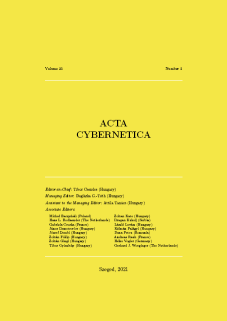A Comparative Study on the Privacy Risks of Face Recognition Libraries
DOI:
https://doi.org/10.14232/actacyb.289662Keywords:
face recognition, machine learning, privacyAbstract
The rapid development of machine learning and the decreasing costs of computational resources has led to a widespread usage of face recognition. While this technology offers numerous benefits, it also poses new risks. We consider risks related to the processing of face embeddings, which are floating point vectors representing the human face in an identifying way. Previously, we showed that even simple machine learning models are capable of inferring demographic attributes from embeddings, leading to the possibility of re-identification attacks. This paper examines three popular Python libraries for face recognition, comparing their face detection performance and inspecting how much risk each library's embeddings pose regarding the aforementioned data leakage. Our experiments were conducted on a balanced face image dataset of different sexes and races, allowing us to discover biases in our results.







